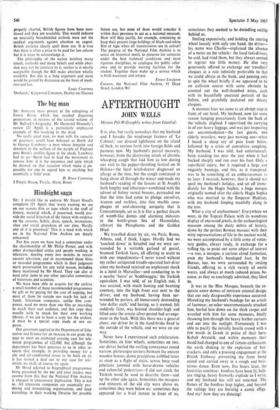Hindsight saga
Sir: I should like to endorse Mr Stuart Hood's complaint (21 April) that 'every evening we see on our screens film or tape which is the stuff of history, material which, if preserved, would pro- vide the social historian of the future with evidence on the customs, habits, dress, speech, intonations, class and social prejudices of our time. Hardly any of it is preserved.' This is a need with which we in the National Film Archive are deeply concerned.
For five years we have had a committee under the chairmanship of Mr Philip Purser, and with other distinguished critics and people working in television, meeting every two months to review current television, and to recommend those films or recorded programmes which in their judgment merit preservation for any valid reason, including those mentioned by Mr Hood. They can also at need refer items to our other specialist committees of historians and scientists.
We have been able to acquire for the archive a small number of these recommended programmes by gift or by paying for the cost of copying, but most of them lie outside our reach for lack of funds. Television companies, unlike film com- panies, need no more than one film or recording to reach their vast audience, and this copy they usually wish to retain for their own working library; if we are to have a copy for the archive, it must be a special copy made at our ex- pense.
Our governors applied to the Department of Edu- cation and Science for an increase in our grant this year to meet an estimated copying cost for tele- vision programmes of 122,000, but although the department has been generous to us in other re- spects (for example, in providing money for a site and air-conditioned stores to be built on it), it has turned a deaf ear to our case for tele- vision; we shall, of course, try again.
Mr Hood referred to biographical programmes being preserved by the BBC and your readers may assume from this that the National Film Archive is engaged in unnecessary duplication. This is not so. All television companies are essentially pro- ducing and transmitting organisations, and keep recordings in their working libraries for possible
future use, but none of them would consider it within their province to act as a national museum. How will they justify, for example, continuing to keep their present large holdings of black-and-white film or tape when all transmissions are in colour? The purpose of the National Film Archive is to select on historical merit, to preserve for centuries under the best technical conditions and most rigorous disciplines, to catalogue for public refer- ence and to provide viewing facilities for the student. Together these make up a service which is both necessary and unique.
Ernest Lindgren Curator, the National Film Archive, 81 Dean Street, London WI


































 Previous page
Previous page